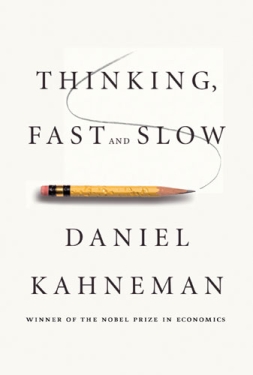- HOME
- INTRO TO THE FORUM
- USE AND MISUSE
- BADLY WRITTEN, BADLY SPOKEN
- GETTING
TO KNOW ENGLISH - PREPARING FOR ENGLISH PROFICIENCY TESTS
- GOING DEEPER INTO ENGLISH
- YOU ASKED ME THIS QUESTION
- EDUCATION AND TEACHING FORUM
- ADVICE AND DISSENT
- MY MEDIA ENGLISH WATCH
- STUDENTS' SOUNDING BOARD
- LANGUAGE HUMOR AT ITS FINEST
- THE LOUNGE
- NOTABLE WORKS BY OUR VERY OWN
- ESSAYS BY JOSE CARILLO
- Long Noun Forms Make Sentences Exasperatingly Difficult To Grasp
- Good Conversationalists Phrase Their Tag Questions With Finesse
- The Pronoun “None” Can Mean Either “Not One” Or “Not Any”
- A Rather Curious State Of Affairs In The Grammar Of “Do”-Questions
- Why I Consistently Use The Serial Comma
- Misuse Of “Lie” And “Lay” Punctures Many Writers’ Command Of English
- ABOUT JOSE CARILLO
- READINGS ABOUT LANGUAGE
- TIME OUT FROM ENGLISH GRAMMAR
- NEWS AND COMMENTARY
- BOOKSHOP
- ARCHIVES
Click here to recommend us!
READINGS IN LANGUAGE
This section features links to interesting, instructive, or thought-provoking readings about the English language and related disciplines. The selections could be anywhere from light and humorous to serious and scholarly, and they range widely from the reading, writing, listening, and speaking disciplines to the teaching and learning of English.
A good decision blends intuition and logical thinking, says book
This early, a new book that postulates that human reasoning is essentially flawed and full of cognitive biases is now being hailed in scientific and intellectual circles as a masterpiece, a tour de force, and “a landmark book in social thought, in the same league as The Wealth of Nations by Adam Smith and The Interpretation of Dreams by Sigmund Freud.” That book is Thinking, Fast and Slow by Daniel Kahneman (Farrar, Straus & Giroux, 499 pages), who won Nobel Prize in Economics Sciences in 2002 for having integrated insights from psychological research into economic science, especially concerning human judgment and decision-making under uncertainty.

Kahneman explains that the “machinery of the mind” consists of two systems that drive the way we think and make choices—the first system fast, intuitive, and emotional, and the second system slower, more deliberative, and more logical. He then shows when and where we can trust our intuitions, tap into the benefits of slow thinking, and guard against the mental glitches that often get us into trouble.
“Most of us are healthy most of the time, and most of our judgments and actions are appropriate most of the time,” Kahneman explains in his introduction to Thinking, Fast and Slow. “As we navigate our lives, we normally allow ourselves to be guided by impressions and feelings, and the confidence we have in our intuitive beliefs and preferences is usually justified. But not always. We are often confident even when we are wrong, and an objective observer is more likely to detect our errors than we are.”
Says Maria Popova, brand strategist and social media consultant, in her review of Thinking, Fast and Slow in The Atlantic: “There is nothing pop about Kahneman’s psychology, no formulaic story arc, no beating you over the head with an artificial, buzzword-encrusted Big Idea. It’s just the wisdom that comes from five decades of honest, rigorous scientific work, delivered humbly yet brilliantly, in a way that will forever change the way you think about thinking.”
Read an excerpt of Daniel Kahneman’s Thinking, Fast and Slow in the NPR.org website now!
Read Jim Holt’s review of the book, “Two Brains Running,” in The New York Times now!
ABOUT THE AUTHOR:
Hailed as one of the most influential thinkers of the last 50 years, Daniel Kahneman received the 2002 Nobel Prize in Economic Sciences for his pioneering work that integrated insights from psychological research into economic science. He is Eugene Higgins Professor of Psychology Emeritus at Princeton University and Professor of Psychology and Public Affairs Emeritus at Princeton’s Woodrow Wilson School of Public and International Affairs. He received his bachelor’s degree in psychology, minor in mathematics, from the Hebrew University in Jerusalem and earned his PhD in psychology from the University of California, Berkeley. He is the author of several academic works and Thinking, Fast and Slow is his first book for the general reader.
RELATED INTERESTING READING:
In “Why our brains make us laugh,” an article in the November 20, 2011 issue of the Boston Globe, Chris Berdik reviews Inside Jokes: Using Humor to Reverse-Engineer the Mind. This new book on the cognitive origins of humor, coauthored by Matthew Hurley, Daniel Dennett, and Reginald Adams, Jr., argues that without humor, humans would have trouble thinking. “We’re a species that thinks prodigiously,” Hurley tells Berdik in an interview for the article. “In every situation, the human brain needs to constantly anticipate the future by making assumptions about the world that unfold at breakneck speed…it’s a resource-hungry job that has to compete with everything else our brains are doing. We think the pleasure of humor, the emotion of mirth, is the brain’s reward for discovering its mistaken inferences. Basically, the brain has to bribe itself to do this important work.”
Read Chris Berdik’s “Why our brains make us laugh” in the Boston Globe now!
Click to read comments or post a comment
View the complete list of postings in this section
(requires registration to post)






